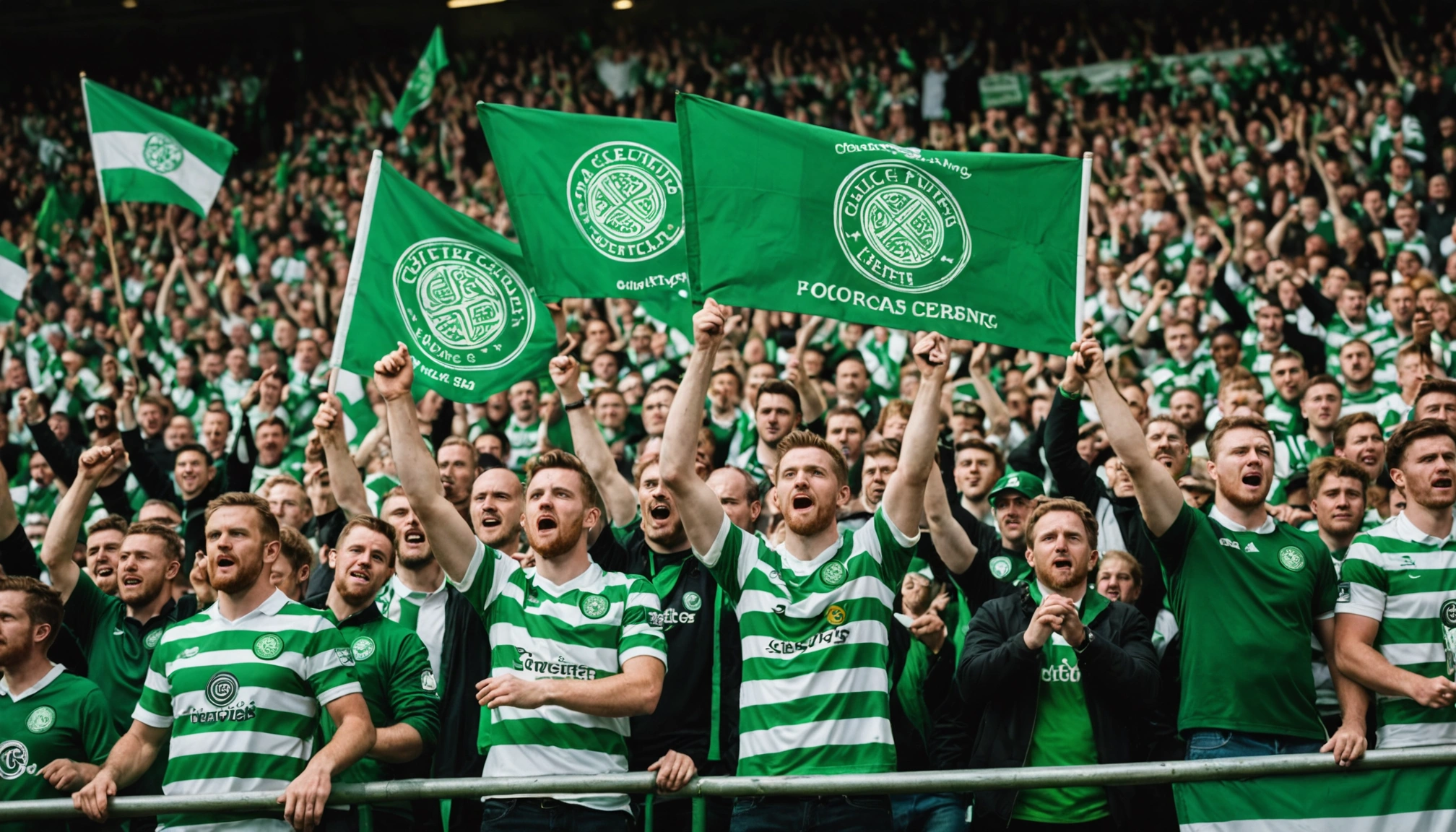Celtic Fans Reject Club Talks Over Policing Concerns
Celtic fan groups refuse to meet club over policing at Rangers game, demanding leadership accountability and answers on police tactics and club strategy.

By Editorial
Celtic Fans Stand Firm Against Club's Policing Discussion Invitation
Celtic fan groups, united under the Celtic Fans Collective, have decisively turned down an invitation from the club to discuss policing issues surrounding their recent Scottish Premiership fixture against Rangers. This refusal marks a significant moment in ongoing tensions between supporters and the club's leadership, amidst calls for a major board overhaul.
Background To The Policing Controversy At Celtic Park
On 16 March 2025, Celtic hosted Rangers in a match that became the centre of heated debate over policing tactics. Ahead of the fixture, police invoked stop-and-search powers under section 60 of the Criminal Justice and Public Order Act 1994. This measure aimed to pre-empt potential disorder by allowing officers to stop fans without reasonable suspicion. According to official reports, 90 supporters were later reported to the Procurator Fiscal for allegedly not complying with these orders, while fans were required to provide personal details to gain stadium access.
The deployment of these powers has sparked outrage among supporters, who argue the approach was heavy-handed and eroded trust between fans, police, and the club. The Celtic Fans Collective, formed recently to consolidate supporter voices, has demanded clarity and accountability regarding these events.
The Independent Review And The Club's Response
In response to the controversy, Celtic FC commissioned an independent review by Fairhurst, a respected sports event safety management consultancy. The review aimed to dissect the events leading to the policing measures and assess their appropriateness.
Following months of anticipation, the club prepared to release the findings. However, when the Celtic Fans Collective, alongside established groups such as the Affiliation of Registered Celtic Supporters Clubs, Bhoys Celtic, Celtic Supporters Association, and the Green Brigade, were invited to discuss these findings, they collectively declined.
The collective issued a statement emphasising their lack of confidence in the current leadership, which includes chairman Peter Lawwell, chief executive Michael Nicholson, and chief financial officer Chris McKay. Their refusal stems from unresolved questions raised in a prior open letter concerning club governance, transfer policies, and policing tactics.
Supporter Demands And Calls For Leadership Change
The Celtic Fans Collective’s formation reflects mounting dissatisfaction with the club's direction. Fans are not only contesting policing practices but also the broader strategic decisions made by the board. Their open letter demanded transparency about the club’s transfer strategy, financial management, and engagement with supporters.
This movement aims to hold the board accountable and push for leadership changes to restore trust and ensure that supporter concerns are genuinely addressed. The refusal to engage in talks without preconditions signals a strategic stance: supporters want meaningful dialogue backed by tangible commitments.
The Wider Implications For Football Policing And Fan Relations
Celtic's situation is emblematic of broader challenges in football governance and policing across the UK. The balance between ensuring safety and respecting fan rights remains complex. Heavy-handed policing can alienate supporters and damage club reputations, while insufficient measures risk disorder and safety threats.
These policing controversies echo scenarios seen in other leagues, highlighting the importance of collaborative approaches between clubs, law enforcement, and fan groups. For example, our coverage on a comprehensive guide to UK and Ireland football leagues and cups explores how different clubs navigate fan engagement and security challenges.
Looking Ahead: What This Means For Celtic And Its Fans
As Celtic prepares to publicly release the Fairhurst report, the tension between fans and the club leadership remains palpable. The refusal of key supporter groups to enter talks without assurances suggests that any resolution will require significant shifts in approach.
For Celtic, the stakes are high: maintaining strong supporter relations is essential for the club’s identity and long-term success. Lessons from this episode could inform future strategies not only at Celtic but also across football, emphasising transparency, respect, and collaboration.
Meanwhile, fans continue to mobilise, watching closely how the club responds to their demands. This ongoing saga underscores the vital role of fan voices in shaping football culture and governance.
Conclusion: Fan Empowerment And The Future Of Club Dialogue
The Celtic Fans Collective’s firm stance against engaging with the club under current leadership highlights a growing trend of fan empowerment in football. Supporters are increasingly unwilling to accept opaque decision-making and policing measures that impact their matchday experience.
Resolving such conflicts requires genuine listening and action from clubs, recognising fans as key stakeholders. By fostering open, respectful dialogue and addressing core concerns transparently, clubs can rebuild trust and create safer, more inclusive environments.
For those interested in the broader sporting landscape and how fan dynamics evolve, articles like how the IOC is reshaping the Olympic Games for the future offer insightful parallels on governance and stakeholder engagement across sports.
Related topics
Editorial
Sports expert at SportsScoop
Specialist in sports analysis and journalism
Related articles
Want to read more?
Explore our comprehensive collection of sports articles and analysis, or contact us for more information.



